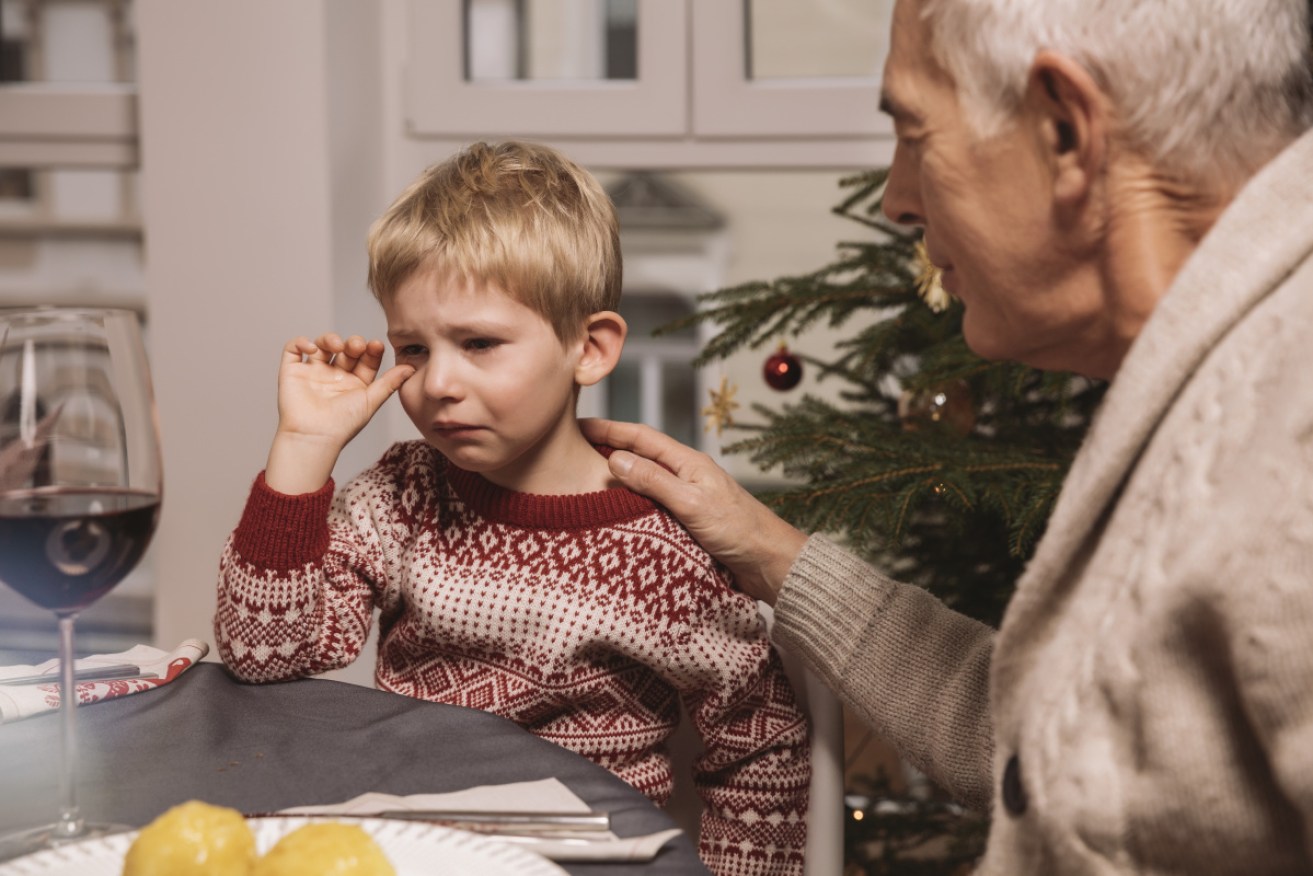On the twelfth day of Christmas my family gave to me … a heart attack


Don't cry little Quentin. Your dear old grandfather has a Christmas tradition of passive-aggressive humour. Photo: Getty
Merry coronary, everybody. The chances of you having a heart attack spikes on Christmas Day – up to nearly 40 per cent – a few hours into the celebrations.
Is it the mountain of food to blame? The two-stroke cocktails?
They don’t help. But researchers, in a 2018 European study, concluded the main driver was heightened emotional stress – with older and sicker people being most vulnerable.
The study, published in the British Medical Journal, built on previous research that found “a peak in heart attacks across the Western world during Christmas and New Year festivities, and during Islamic holidays in countries where the religion predominates”.
The awkward truth is that the people we love the most – or at least own up to as being family – are the prime cause behind us clutching our chests and falling to the floor.
How our families make themselves sick
Lyn Bender is a psychologist, social commentator and a former manager of Lifeline in Melbourne. While at Lifeline, journalists would call each year and ask what were the Christmas-related stressors driving people to seek help.
“A lot of the emphasis was on the fact that a lot of people feel excluded at Christmas,” she said. “There were these themes of inclusion and exclusion – and that wasn’t just for people who were spending the day alone, but it’s also felt by people sitting down with their families.”

Psychologist Lyn Bender says the family gathering on Christmas Day tends to push buttons. Photo: supplied
The other big theme was “high expectations and big disappointments – because there’s such an emphasis on Christmas being the proving ground of your family’s functionality,” Ms Bender told The New Daily.
“All the marketing and advertising around Christmas is based on this idea of the perfect family having the perfect time together.
“And so expectations are raised – but then your uncle gets drunk and starts having a go at somebody else, your father sits in the corner saying nothing, your sister tries to take over and be the hero of the day. Everything that has always annoyed you about your family happens.”
Why don’t we ever let it go
Ms Bender said a Christmas Day gathering is a form of time travel.
“It rekindles our family of origin conflict. We’re back in time and all the old grudges and grievances are revived,” she said
“Your mother always liked your brother more, your father starts making put-down jokes, your siblings return to their old roles in the family, the old pecking order, the childish behaviours, all brought back to life unconsciously.
“Old arguments come to the fore – ‘You always take the biggest piece of cake!’ – and they get projected on the present day. It’s happened the same way year after year.”
Part of the Christmas curse is a tendency for battle-worn family members to engage in the fight or flight response – either make a big scene or run away from Christmas altogether.
Ms Bender suggests that families who are perhaps sick of the same old conflict grind try something different.
“Have Christmas at the park or at the beach, maybe it doesn’t have to be the one big gathering, bring in some new guests… or make it more like a party than a formal sit-down,” she said.
However, changing a ritual isn’t so easy. “We actually crave to hang on to old times,” said Ms Bender. “Dad carving the chicken, mum cooking a particular dish. It could be a matter of negotiating what to keep and how to do things differently. I think people could get more creative about it.”
While Christmas Day can seem purpose-built to push everybody’s buttons, Ms Bender suggests people remind themselves of two simple truths: “Love and family isn’t about one day in the year, and a relationship isn’t about your worst argument.”
Some tips for peace on earth, goodwill to all uncles
If your family dynamic on Christmas day is on the nose, Ms Bender suggests the following:
- Reduce alcohol or avoid it altogether
- Reduce expectations both good and bad
- Focus on the members of the gathering that you get along with
- Avoid the buildup of pre-Christmas over-consumption
- Show some love or compassion to others, including the homeless
- Do something positive on the day
- Invite a lonely person to your celebration
- Allow some time to acknowledge grief and loss that can emerge at this time
- Try to do something different: creative and restorative.








